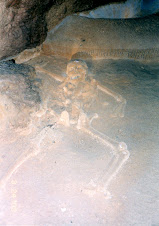After viewing the chart at the bottom of page 699 in your textbook:
1) In 1914, to which country was the USA exporting the most? In 1915? In 1916?
2) Comparing the 1916 numbers to the 1914 numbers, which country saw the largest percentage increase in USA exports? Which country saw the largest decline?
3) What can you infer from these export statistics about which side in the Great War the USA was more aligned with by 1916?
Monday, February 22, 2010
Foreign Entanglements
1) Who is marrying "Foreign Entanglements?"
2) Who is objecting to the wedding?
3) What can you infer about the reason for the objection to the wedding? What is the specific cause of the objection?
2) Who is objecting to the wedding?
3) What can you infer about the reason for the objection to the wedding? What is the specific cause of the objection?
Article X of the Covenant of the League of Nations
Article X of the Covenant of the League of Nations:
The Members of the League undertake to respect and preserve as against external aggression the territorial integrity and existing political independence of all Members of the League. In the case of any such aggression or in case of any threat or danger of such aggression the Council shall advise upon the means by which this obligation shall be fulfilled.
When you read Article X, therefore, you will see that it is nothing but the inevitable, logical center of the whole system of the Covenant of the League of Nations, and I stand for it absolutely. If it should ever in any important respect be impaired, I would feel like asking the Secretary of War to get the boys who went across the water to fight, . . . and I would stand up before them and say, Boys, I told you before you went across the seas that this was a war against wars, and I did my best to fulfill the promise, but I am obliged to come to you in mortification and shame and say I have not been able to fulfill the promise. You are betrayed. You have fought for something that you did not get.
Source: Woodrow Wilson, Speech, September 5, 1919.
1) What is the gist of Article X?
2) How does President Wilson feel about Article X?
3) Who are the "Boys" that Wilson is referring to?
The Members of the League undertake to respect and preserve as against external aggression the territorial integrity and existing political independence of all Members of the League. In the case of any such aggression or in case of any threat or danger of such aggression the Council shall advise upon the means by which this obligation shall be fulfilled.
When you read Article X, therefore, you will see that it is nothing but the inevitable, logical center of the whole system of the Covenant of the League of Nations, and I stand for it absolutely. If it should ever in any important respect be impaired, I would feel like asking the Secretary of War to get the boys who went across the water to fight, . . . and I would stand up before them and say, Boys, I told you before you went across the seas that this was a war against wars, and I did my best to fulfill the promise, but I am obliged to come to you in mortification and shame and say I have not been able to fulfill the promise. You are betrayed. You have fought for something that you did not get.
Source: Woodrow Wilson, Speech, September 5, 1919.
1) What is the gist of Article X?
2) How does President Wilson feel about Article X?
3) Who are the "Boys" that Wilson is referring to?
Proposed League of Nations
The first proposition connected with the proposed league is that of a tribunal to settle the matters of controversy which may arise between the different nations.
Will anyone advocate that those matters which are of vital importance to our people shall be submitted to a tribunal created other than by our own people and give it an international army subject to its direction and control to enforce its decrees? I doubt if anyone will advocate that. . . . If you do not do so, Mr. President, what will your league amount to? . . .
In its last analysis the proposition is force to destroy force, conflict to prevent conflict, militarism to destroy militarism, war to prevent war. In its last analysis it must be that if it has any sanction behind its judgment at all. There is where the difficulty lies. . . .
Source: William Borah, Speech in the United States Senate, December 6, 1918.
1) What potential flaws does Senator Borah see in the proposed league of nations?
2) What can you infer about Borah's support for the proposed league?
Will anyone advocate that those matters which are of vital importance to our people shall be submitted to a tribunal created other than by our own people and give it an international army subject to its direction and control to enforce its decrees? I doubt if anyone will advocate that. . . . If you do not do so, Mr. President, what will your league amount to? . . .
In its last analysis the proposition is force to destroy force, conflict to prevent conflict, militarism to destroy militarism, war to prevent war. In its last analysis it must be that if it has any sanction behind its judgment at all. There is where the difficulty lies. . . .
Source: William Borah, Speech in the United States Senate, December 6, 1918.
1) What potential flaws does Senator Borah see in the proposed league of nations?
2) What can you infer about Borah's support for the proposed league?
Subscribe to:
Comments (Atom)



